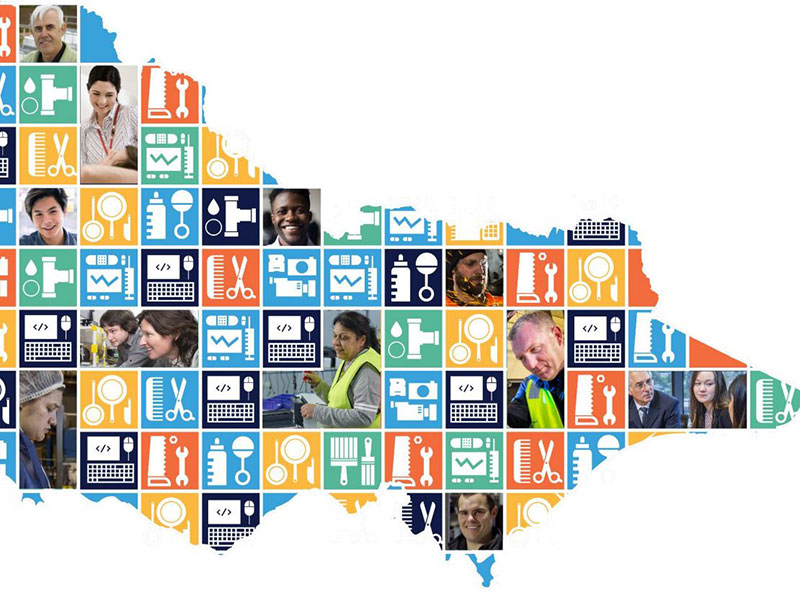Big changes are mooted in the just released review of the Victorian VET Sector, including the establishment of a new independent body, FutureSkills Victoria, “to act as a champion and steward of the skills system.”
What the report found and recommends
The review report, entitled ‘Future Skills for Victoria: Driving collaboration and innovation in post-secondary education and training’ has six chapters and 30 recommendations. Central to this is setting up FutureSkills Victoria, whose role is to “transform the skills sector through a more collaborative approach, creating potentially lasting benefits for innovation, effectiveness and efficiency.” Its establishment is a priority as is building “an evidence and data base that can support improved planning and decision making.” The first three recommendations of the review (1.1 to 1.3) are focused on the establishment and role of this body.
The review proposes “a staged implementation approach that engages with key stakeholders and which distinguishes immediate reforms from medium-term goals.” But these reforms need to happen with the active involvement of the system rather than reforms merely being imposed on it. This is “the only way to ensure that change [will be] effective, supported and sustained.” Part of the process will see the development of “an annual Victorian Skills Plan that sets out Victoria’s skills needs for the year ahead and beyond.” The review’s report also suggests the development of a new system for financing VET because a better understanding is needed “of costs, subsidies, prices, loadings and concessions to enable the Victorian Government to produce a fairer VET funding model.” In addition, it recommends attention to ensure “student payments for VET courses more standardised, transparent and fair.”
A focus on the quality of teaching and learning
One chapter and 8 recommendations are focused on delivering quality teaching and learning. The review sees an expanded role for the VET Development Centre as part of Future Skills Victoria which will begin with the development and sharing of “excellent curriculum” and improving the professional learning for VET and adult and community education teachers. The process will involve VDC establishing “professional learning communities to review, adapt and update shared resources over time” and “support leading providers to develop and deliver training for VET teachers who apply shared resources in their practice.” Assessment is not forgotten either, with Future Skills Victoria having a role in improving its quality and consistency. All this will all help “connect practice insights to teacher professional learning,” as the review report recommends.
In addition, the report calls for scaling up and connecting leading models of student support as an important component of improving the quality of the whole learning experience and placing students at the centre of learning.
Future Skills Labs are proposed as a way of enabling key industries to test new models and innovative practices in education and training and by scaling up innovation in digitally supported learning. The report calls for “developing ‘stackable’ microcredentials that are validated for quality and built into the Government’s funding model for VET courses, and that employers would recognise as a step towards full qualifications” (we highlighted work in South Australia along these lines in another article in this issue). It will also require the “strengthening learning pathways between ACFE and the broader VET system, and VET and higher education [and the development] of higher apprenticeships and increasing work-integrated learning, including by working with the Victorian Government to introduce apprenticeships and traineeships at higher level qualifications” as well as making better use of work-integrated learning.
Finally, Future Skills Victoria will have a role both in developing a culture of continuous improvement and provider self-assessment and growing the VET workforce through developing and scaling up “flexible models for entry into VET teaching careers, including industry-specific teacher training and a traineeship pathway for industry experts and leading innovators to transition into VET teaching.” Other professional development initiatives proposed include setting clear expectations for VET and ACFE teacher professional learning (Recommendation 6.5) and expanding collaborative teacher professional learning (Recommendation 6.6) – where VDC will have a key role to play.








